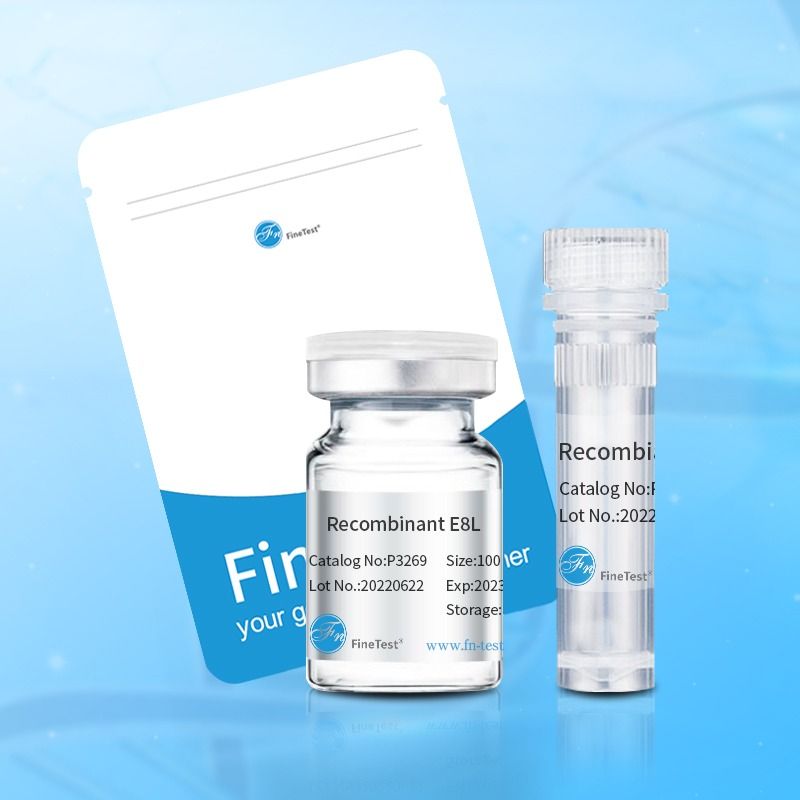
Proteins are important functional molecules in organisms, playing very significant roles in development and production of biopharmaceuticals. Drug research aims to discover and develop new compound affecting disease-related protein function or protein-protein interaction. Having accurate functional and structural information of disease-related proteins helps to drug discovery and development. Drug target proteins should support screening, research on structure and mechanism, and data offered for driving chemical design.
Protein Drug Targets
Drug targets refer to binding sites of drugs in the body, including biomacromolecules like gene locus, receptor, enzyme, ion channel and nucleic acid etc. Research and development of modern new drugs should first seek, confirm and prepare drug screening targets(i.e. molecular drug targets). The selection and confirmation of effective drug target is the first priority for new drug discovery.
Most of drug targets are proteins and chemical substances used for treatment and diagnosis of diseases, selectively interacting with target proteins to change biological pathways or function. The target selection should consider many factors, such as pathophysiological mechanisms of diseases, target druggability and safety etc.
Drug Target Proteins
| Target | Cat.No | |||||||||
|---|---|---|---|---|---|---|---|---|---|---|
| G-CSF | P4639 | P4641 | P5594 | P9499 | P9500 | |||||
| GH | P0182 | P0183 | P2038 | P2040 | P2112 | P2122 | ||||
| GM-CSF | P8665 | P9321 | P9699 | |||||||
| TNF-β | P4415 | P4616 | ||||||||
| TGF-β | P2940 | P9706 | ||||||||
| IL-2 | P4478 | P4823 | P5440 | P10053 | ||||||
| IL-4 | P4505 | P4572 | ||||||||
| IL-5 | P4506 | P5678 | P9693 | |||||||
| BDNF | P4949 | |||||||||
| FGF-10 | P1643 | P5552 | ||||||||
| FGF-12 | P1663 | |||||||||
| TNF-α | P1586 | |||||||||
| VEGF-165 | P8133 | |||||||||
Antibody Drug Targets
Antibody drugs consist of antibody substances. In the past 30 years, therapeutic antibodies completely changed targeted cancer therapy. Currently, US food and drug administration(FDA) has approved over 100 monoclonal antibodies for treating different human diseases, including cancer, autoimmune diseases and chronic inflammatory diseases etc. Besides, derivatives of monoclonal antibodies are also applied for clinical purpose, and become alternative therapeutic drugs of various cancers, e.g. antibody fragment, bispecific antibody, antibody conjugated drug, antibody fusion protein etc.
Biologic therapy based on antibodies is one of the fastest-growing segmental markets in pharmaceutical industry. With high selectivity and ideal pharmacological properties(e.g. longer half-life), they’re more effective and safer than small molecule drugs.
All drugs in the market just cover hundreds of targets. Less than one tenth of antibody drug targets are approved. Large development opportunities are still available. Targeted antibody drugs for specific molecular targets(antigens) can be prepared. Thus, selection of affected targets is important for developing targeted antibody drugs.
Antibody Drug Proteins
| Target | Cat.No | |||
|---|---|---|---|---|
| 4-1BB R | P2265 | |||
| BAFF | P7012 | |||
| Fractalkine | P0833 | P4137 | P4198 | |
| GM-CSF | P8665 | P9321 | P9699 | |
| IL-5 | P4506 | P5678 | P9693 | |
| TNF-α | P1586 | |||
| PD-1 | P8898 | |||
| PD-L1 | P6857 | |||
| CD86 | P1878 | |||
| CD137 | P2265 | |||
| CD25 | P9745 | P10045 | ||
| CD28 | P9994 | |||
| CD47 | P9554 | |||
| TGF-β | P2940 | P9706 | ||
CAR-T Therapeutic Targets
CAR-T therapy is chimeric antigen receptor T-cell immunotherapy, which is a new targeted therapy for tumor treatment. In recent years, better curative effects have been achieved via optimizing clinical performance. CAR-T therapy is a new possible tumor immunotherapy for curing cancer with high accuracy and efficiency.
In the laboratory, technical staff activate T cell via genetic engineering technology, and also install positioning and navigation device CAR(chimeric antigen receptor) to reconstruct T-cell as CAR-T cell. They can efficiently kill tumor cells to treat malignant tumor, using CAR to specially recognize tumor cell in vivo and releasing a large number of multiple effect factors via immunization.
As the hottest anti-tumor therapy in recent years, CAR-T therapy first obtains better curative effect in various hematological malignancies. Currently, approved CAR-T products in the global market are targeted hematological malignancies. CAR-T therapy has obtained remarkable achievements in this field. Due to heterogeneity, targeted specificity and immune escape etc, CAR-T therapy research for solid tumor is slower. Selection of targets is important during the research. In recent years, various hot targets are under research. With the deeper research and development of more targets, more people can benefit a lot from CAR-T therapy.
CAR-T Therapeutic Proteins
| Target | Cat.No | ||||||
|---|---|---|---|---|---|---|---|
| IL-7 | P4735 | P5417 | P9609 | ||||
| IL-2 | P4478 | P4823 | P5440 | P10053 | |||
| IL-15 | P5164 | P8061 | |||||
| CD86 | P1878 | ||||||
| CD137 | P2265 | ||||||
| CD47 | P9554 | ||||||
| CD25 | P9745 | P10045 | |||||
| CD28 | P9994 | ||||||
| PD-1 | P8898 | ||||||
| PD-L1 | P6613 | P6857 | |||||
